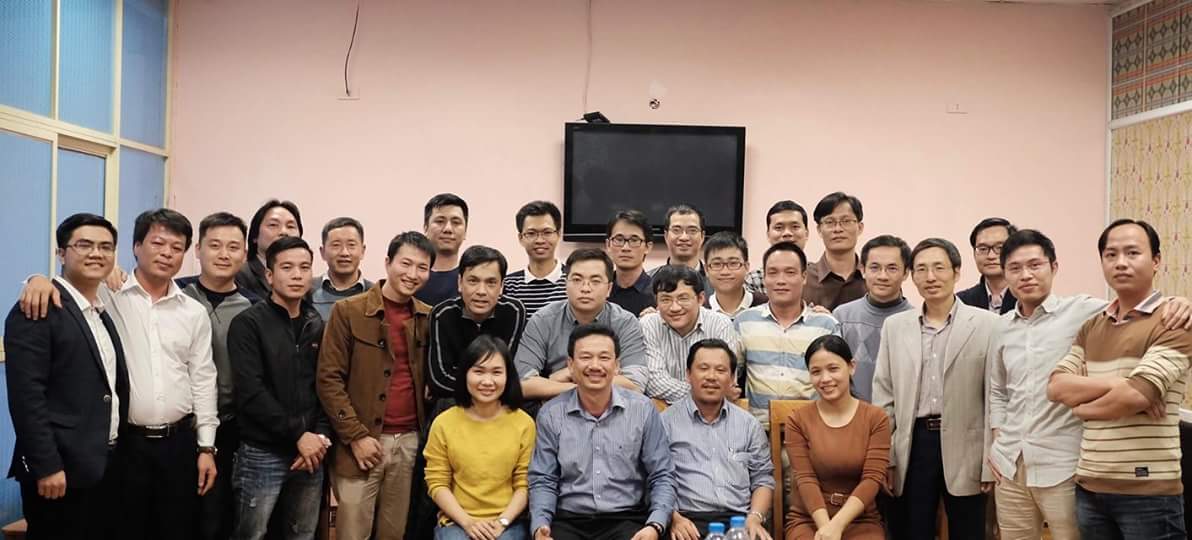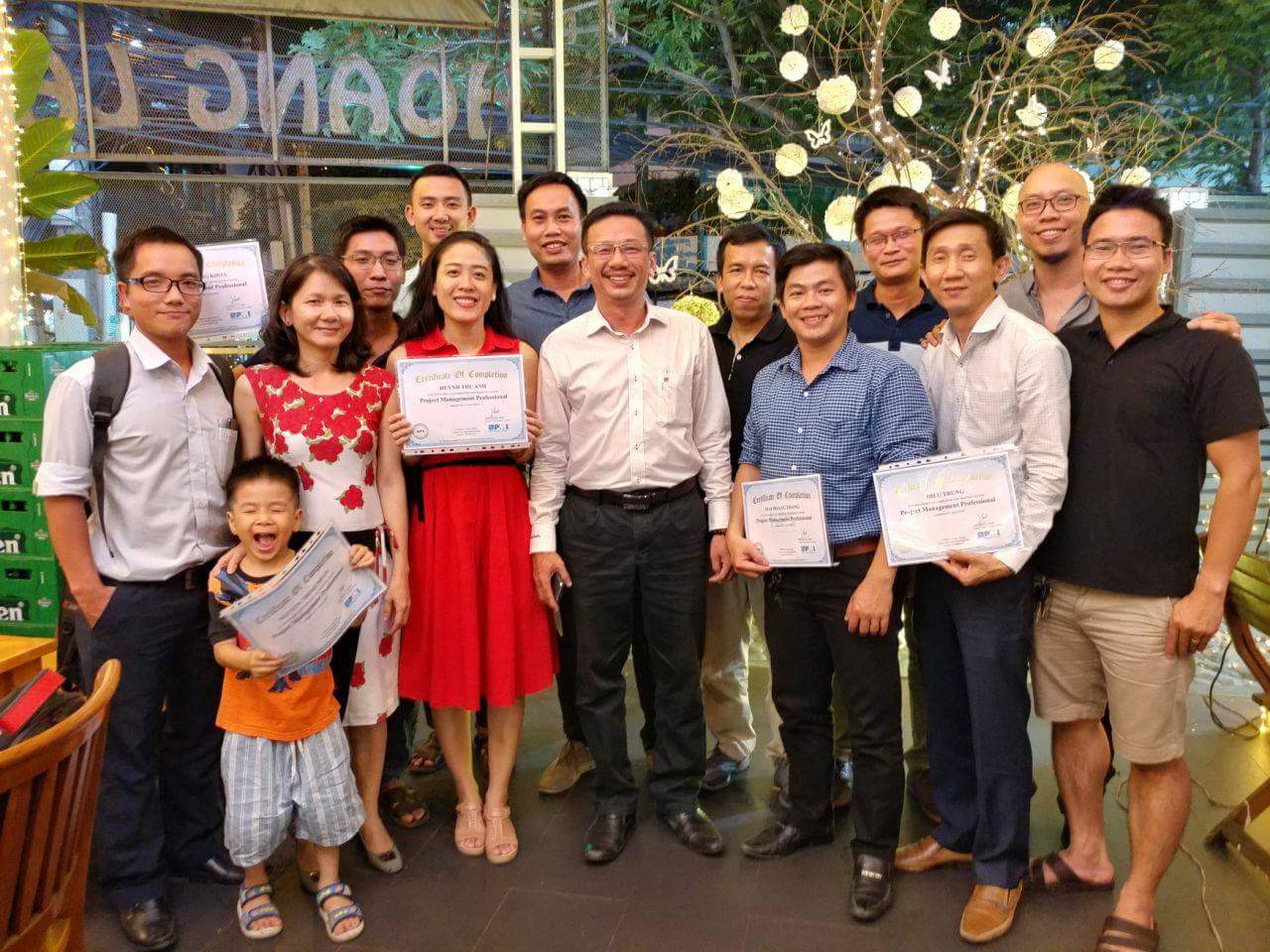Purpose and Background:
The management of a project is a difficult and challenging task due to the many variables determining its final outcome. Although classic project management techniques addressing Scope/Quality, Cost and Schedule requirements are proven approaches to managing a project effectively, projects often run into troubles even when well-planned and sound-controlled methods are employed. The common reason is that threats/opportunities to the project are not clearly identified and actions to control these threats are not properly implemented. Consequently, project managers and technical engineers must be consciously aware of potential threats/opportunities to the success of their projects and take proactive early, effective and offensive actions against these threats. An effective risk management approach will provide project managers with a needed project management technique that will significantly increase the probability of success for their projects by addressing these problems, resulting in clear benefits to them and their clients. Its objectives are to decrease the likelihood and impact of negative events, and increase the likelihood and impact of positive events in the project.
Learning Objectives:
To provide practical coverage of all basic aspects of project risk management principles and methodologies by providing the participants with the basic elements of risk management, its process for planning and controlling potential risks/opportunities , the required skills and how this process fits with scope/quality, cost and schedule requirements in the overall context of the project life cycle. This seminar examines an effective risk management approach applied to projects to mitigate the uncertainty level associated with the planning and control of a project. The seminar will help project managers and those working as project team members as well as other project stakeholders understand risk management issues they must deal with in the course of their project performance.
Benefits for Participants:
ï‚· Understand why risk management is an essential element of a complete and effective project management approach
ï‚· Learn how to effectively identify risks that may affect your project’s success
ï‚· Develop a strategy to assess potential risks and select those likely to significantly impact your project’s success
ï‚· Make project decisions faster, more effectively and more confidently with a proactive risk management approach
ï‚· Develop an effective risk management planning and control strategy
ï‚· Avoid the pitfalls of project management by quickly identifying potential project risks and mitigate them as early as possible
ï‚· How to continually re-evaluate and reassess risks during project implementation
ï‚· Document a useful “lessons learned” risks based on your project strategy
Who Should Attend?
This seminar is designed for those working on projects in all industries who would like to learn the important elements of risk management process and well as project managers who want to implement and effective risk management process for their projects. A practical and effective risk management process will ensure that project team members know their roles in the process so as to complete their project on time and within budget as a team and meet or exceed stakeholders’ needs and expectations.
Scheduled Outline: The seminar is scheduled for three (3) days; each day starting from 8:00 AM to 4:30 PM with a half hour coffee break during each morning and afternoon session.
DAY 1: Project Risk Management Overview
ï‚· Why Project Risk Management is required?
ï‚· The Risk Management Need
ï‚· Risk Management in Project Operations
ï‚· Definition of Project Risk
ï‚· Individual Risk versus Overall Project Risk
ï‚· Stakeholder Risk Attitudes
ï‚· Iterative Process of Project Risk Management
ï‚· Risk Communication
ï‚· Risk and Uncertainty ï‚· Risk and Opportunity
ï‚· Project Risk Management
ï‚· Primary Aspects of Risk Management
ï‚· Effective Risk Management Process
ï‚· Risk Categories ï‚· Risk Breakdown Structure (RBS)
ï‚· Critical Success Factors (CSF) in Risk Management
ï‚· Project Manager’s Functions for Risk Management
Risk Management Planning
ï‚· Plan Risk Management Approach
ï‚· Risk Identification ï‚· Data Sources and Applications
ï‚· Risk Register
ï‚· Risk Assessment, Analysis and Prioritization
ï‚· Risk Tolerance ï‚· Risk Probability ï‚· Risk Impact ï‚· Risk Matrix
ï‚· Qualitative Risk Analysis
ï‚· Quantitative Risk Analysis
ï‚· Risk Filtering
ï‚· Risk Selection for Risk Management
ï‚· Risk Response Development
ï‚· Risk Avoidance Plan
ï‚· Risk Contingency Plan
ï‚· Risk Tracking and Reporting Approach
ï‚· Risk Organization and Responsibilities
ï‚· Risk Management Plan Documentation
ï‚· Risk Management Database
ï‚· Risk Management Planning Outputs
ï‚· Risk Management Plan Outline
ï‚· Risk Management Planning Process Summary
ï‚· Flow of Risk Management Planning Responsibilities
DAY 2: Risk Management Control
ï‚· Risk Avoidance Plan Implementation
ï‚· Risk Avoidance Plan Activities Effectiveness Evaluation
ï‚· Risk Reports and Reviews
ï‚· Risk Contingency Plan Implementation
ï‚· Risk Contingency Plan Activities Effectiveness Evaluation
ï‚· Contingency Plans Redefinition
ï‚· Risk Management Control Process Summary
ï‚· Flow of Risk Management Control Responsibilities
ï‚· Management of Contingency Allowances
ï‚· Dealing with Risks in Basic Types of Contracts
ï‚· Risk Management Best Practices
DAY 3: Risk Management As a Project Management Process
ï‚· Initiation: Project Risk/Opportunity Assessment
ï‚· Planning: Risk Management Planning
ï‚· Executing: Project Risk Audit
ï‚· Monitoring & Control: Continuing Risk Assessment
ï‚· Closure: Risk Knowledge Transfer
Typical Areas of High Uncertainty Leading to Risks in Projects
ï‚· Scope ï‚· Time ï‚· Cost
ï‚· Technology ï‚· Resources ï‚· Material
ï‚· Organization ï‚· Marketability ï‚· Personal ï‚· People/Interpersonal ï‚· External Actions
Project Risk Audit
ï‚· Executing Risk Audit ï‚· Risk Audit Evaluation ï‚· Risk Audit Critical Success Factors (CSFs)
Risk Knowledge Transfer
ï‚· Executing Risk Knowledge Transfer
ï‚· Risk Knowledge-based Structure
ï‚· Risk Knowledge-based Tables
Group Discussions, Practical Examples, Video Presentations and Case Studies
Course fee: 5,500,000 VNÄ
Deadline for Register: 31 May 2016
Link Register: https://docs.google.com/spreadsheets/d/1XoxWDVcLUuAUkIeM5W-PpcPjtbQZRxUARxbctgstWs0/edit?usp=sharing
Available Time slots:
HCM Class: 24-25-26/June/2016 (Public, 8:00AM - 11:30AM & 13:00PM - 16:30PM)
Link Register: https://docs.google.com/spreadsheets/d/1XoxWDVcLUuAUkIeM5W-PpcPjtbQZRxUARxbctgstWs0/edit?usp=sharing
1. KPS - Award a "Risk Management - PMI Standard" Certificate
2. Instructor: Dr. Nghi M. Nguyen, Ph.D., P.E., PMP, M.ASCE, is President and CEO of NDV Project Management Services Inc, one of the first members of the Project Management Institute (PMI)’s Registered Consultant Program (RCP) since 2011 . He has had more than 30 years of progressive, domestic and international consulting and training experience in the field of project/program management on major construction, aerospace, defence and high-technology projects with leading Canadian and U.S. Corporation such as the SNC-Lavalin Group, Lockheed Martin, CAE, NASA and the Canadian Space Agency (CSA). He served as Program Control Manager for the multi-billion dollar Canadian Patrol Frigate (CPF) program, the largest and most complex shipbuilding construction program in Canadian history for Lockheed Martin Canada (formerly Unisys Systems Canada).
As a well-known, recognized project management consultant and trainer, Dr. Nguyen has assisted clients with project management approaches to effectively and efficiently complete projects and attain their objectives. He is a specialist in project management training, consulting, definition, development, identification of project objectives, constraints and methodologies. He has managed and participated in numerous EPC projects during his career in the construction industry for large industrial projects.
Dr. Nguyen has worked as a project management consultant for the Canadian Space Agency (CSA) on projects associated with the International Space Station (ISS) program, the 16-nation effort led by NASA to build the permanently orbiting laboratory in space, the largest and most sophisticated international engineering project ever undertaken in the history of the world as well as for SNC-Lavalin International on China’s Three Gorges hydro-electric development project, the largest construction project in the world to date, and was involved in a number of projects in the Information Technology (IT) and Oil and Gas sectors, among them was the construction of the $ 5 billion Hibernia Oil Production Platform in St John, Newfoundland, Canada.
A long-time member of the American Society of Civil Engineers (ASCE), Dr. Nguyen is currently delivering project management seminars for the ASCE, International Institute for Learning, Inc (IIL) in the USA as well as for other training organisations worldwide. He has delivered project management seminars to audiences all over the world and trained thousands of project managers on a variety of topics associated with international project management standards. He recently developed and delivered a project management curriculum for CAE, the world leader in flight simulation and pilot training, for its project managers in locations worldwide (Canada, the U.S., Australia, Germany, U.K.).
An internationally recognized speaker, author and presenter, Dr. Nguyen has written and presented numerous technical papers on project/program management related topics in international conventions and congresses in Canada, the U.S., Europe, Asia and the Caribbean, sponsored by professional associations such as the Project Management Institute (PMI), the American Consulting Engineering Council (ACEC), The Association for the Advancement of Cost Engineering (AACE) International, American/Canadian Society of Civil Engineers (ASCE/CSCE), the Pan-Pacific Business Association (PPBA), the American Institute of Aeronautics and Astronautics (AIAA), the Caribbean Council of Engineering Association and the Paris-based association Francais des Ingenieurs et Techniciens d’Estimation et de Planification de Projets (AFITEP).
Educated at McGill and Concordia Universities in Montreal, Quebec, Canada, Dr. Nguyen holds B.S., M.S. and Ph.D. degrees in Civil Engineering and Construction & Project Management and is a Certified Project Management Professional (PMP) since 1995 and also a part-time professor at the Faculty of Engineering and Computer Science at Concordia University. He has also lectured under the United Nations Development Programme (UNDP), the Maastricht MBA (A joint programme between the Maastricht School of Management of The Netherlands and the School of Industrial Management of Vietnam’s National University) as well as the McGill University Executive Institute Management Development Program in Canada and is a registered civil engineer and project manager in both Canada and the USA. He served as a member of the Canadian Advisory Council (CAC), set up by The Standards Council of Canada (SCC) to participate in the development of the International Organization for Standardization (ISO)’s project management standard, which has been released in September 2012 as ISO 21500 for project management as well as served as the final draft reviewer and contributor to the PMBOK® Fifth Edition recently released by PMI in January 2013.
Benefits for Participants:
ï‚· Understand why risk management is an essential element of a complete and effective project management approach
ï‚· Learn how to effectively identify risks that may affect your project’s success
ï‚· Develop a strategy to assess potential risks and select those likely to significantly impact your project’s success
ï‚· Make project decisions faster, more effectively and more confidently with a proactive risk management approach
ï‚· Develop an effective risk management planning and control strategy
ï‚· Avoid the pitfalls of project management by quickly identifying potential project risks and mitigate them as early as possible
ï‚· How to continually re-evaluate and reassess risks during project implementation
ï‚· Document a useful “lessons learned” risks based on your project strategy
- TRỌN GÓI "ÄÀO TẠO KỸ NÄ‚NG QUẢN Là Dá»° ÃN CHUYÊN NGHIỆP & ÔN LUYỆN THI CHỨNG CHỈ QUá»C TẾ PMP® MIỄN PHÃ"
- IN-HOUSE - ÄÀO TẠO THEO YÊU CẦU DOANH NGHIỆP - KỸ NÄ‚NG QLDA CHUYÊN NGHIỆP - CHUẨN QUá»C TẾ PMI US
- KHÓA PHẦN MỀM QLDA ORACLE PRIMAVERA P6 R15
- EARNED VALUE MANAGEMENT (EVM)
- VŨNG TÀU - KHAI GIẢNG 18/07/2015 - KHÓA KỸ NÄ‚NG QUẢN Là Dá»° ÃN CHUYÊN NGHIỆP & LUYỆN THI PMP®
- HCM & HÀ NỘI - MICROSOFT PROJECT 2013 - CÔNG CỤ CHO NHÀ QUẢN Là Dá»° ÃN CHUYÊN NGHIỆP
- TỔNG QUAN QUẢN Là Dá»° ÃN - CHUẨN QUá»C TẾ PMI®
- KỸ NĂNG MỀM - PRESENTATION/ COACHING & COUNSELLING/ NEGOTIATION SKILLS























